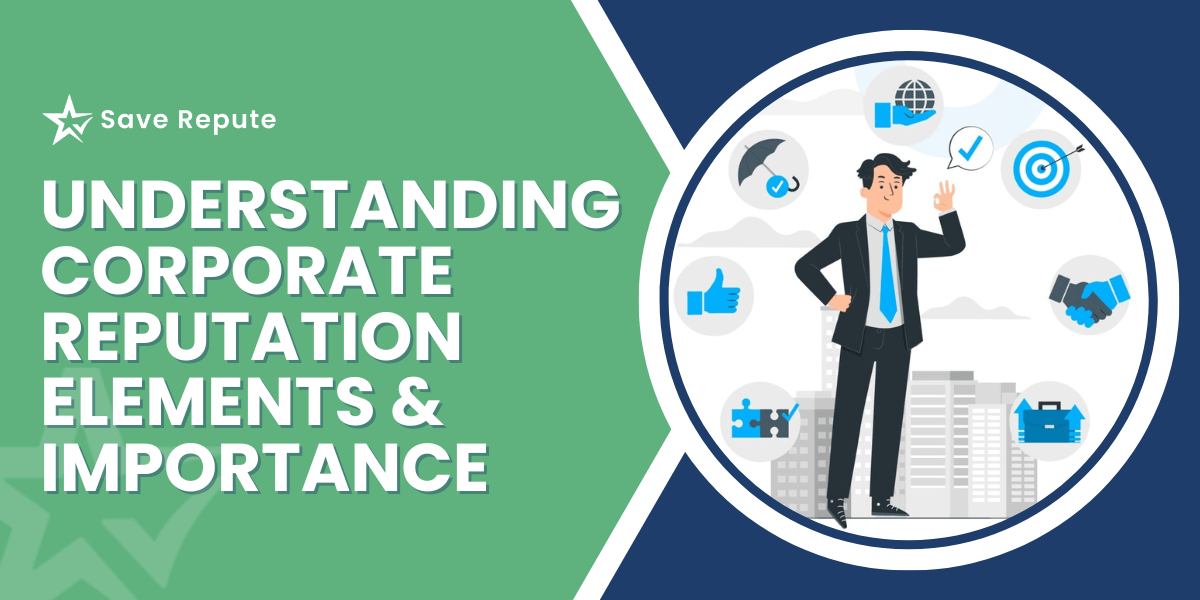In the competitive business world, corporate reputation stands at the forefront of a brand’s success. Companies are increasingly conscious of their image because a sterling reputation doesn’t just paint a positive picture—it significantly boosts revenue and ensures long-term loyalty. This is where corporate reputation management services step in, offering businesses a lifeline to cultivate, maintain, and even rebuild their standing. For customers, a company’s reputation often shapes purchasing decisions and perceptions, making it a silent yet powerful ambassador in the marketplace.
What is Corporate Reputation?
Corporate reputation is defined as the collective perception and evaluation of a company’s credibility, trustworthiness, and overall standing by its stakeholders, customers, and the wider public.
In the interconnected age we live in, this reputation isn’t just a static badge—it evolves with every company action, public relations effort, and word of mouth. Mishaps, although undesirable, are inevitable, making reputation repair an essential tool in the arsenal to rectify and realign a brand’s image.
Consider corporate reputation as a brand’s dynamic resume, influenced and updated with each interaction. A strong reputation is more than public sentiment; it mirrors a company’s intrinsic values, ethics, and practices. It underscores the ongoing commitment of businesses to earn trust and cement their credibility in the marketplace.
Difference Between Corporate Reputation And Brand Image?
Corporate reputation is the collective perception of a company’s trustworthiness and credibility based on its actions and history.
In contrast, brand image refers to the visual and emotional impression a brand creates in the minds of consumers. While reputation is built over time through consistent actions and outcomes, brand image can be shaped more swiftly through marketing and aesthetics.
Elements of Corporate Reputation
Product or Service Quality:
The quality of a company’s offerings directly shapes its reputation. Exceptional products or services lead to positive word-of-mouth and lasting trust.
Relationship Management:
Strong relationships are foundational for any business. Effective relationship management fosters trust and goodwill among stakeholders, employees, and customers.
Leadership and Management:
The actions and decisions of a company’s leaders set its tone. Effective leadership not only drives success but also positively shapes the public’s perception.
Financial Performance:
Stability and profitability in financial performance enhance a company’s reputation, signaling reliability and long-term viability to stakeholders.
Corporate Responsibility:
Commitment to ethical practices, sustainability, and community engagement elevates a brand, showcasing its dedication to more than just profit.
Importance of Corporate Reputation
Attracting Top Talent
Reputable companies often attract the best employees. A strong reputation is a magnet for top-tier talent, ensuring the company can avoid actions that could damage company reputation.
Customer Trust and Loyalty
A company’s reputation significantly determines customers’ trust and loyalty. When incidents arise that might damage a company’s reputation, loyal customers often remain, valuing past positive experiences.
Competitive Advantage
In the crowded marketplace, a robust corporate reputation provides a distinct edge. It makes companies resilient, even when facing challenges or working on rebuilding a damaged brand.
Crisis Management:
A solid reputation is invaluable during controversies. It acts as a protective buffer, allowing companies more leeway and time to rebuild a damaged brand effectively.
How To Measure Corporate Reputation?
To make sure your brand image and reputation are both in a good state, you need to know the metrics that help you gauge your corporate reputation. Here are a few things that will help you know how well your reputation is performing:
- Surveys and Feedback:
Tapping directly into the customer’s perspective, surveys and feedback offer invaluable insights into their experiences and how they perceive the brand.
- Online Reviews and Ratings:
In today’s digital age, online reviews hold immense power. They act as a real-time barometer, gauging the general sentiment and trustworthiness of a company based on user experiences.
- Media Coverage:
Media mentions, be they positive or negative, have a significant impact on a company’s reputation. Analyzing press coverage helps assess how the brand is portrayed in the public domain.
- Financial Indicators:
Tangible metrics like stock price and investments are crucial indicators. A thriving corporate reputation often correlates with positive financial performance and investor confidence.
You may be Interested in reading: Role of Social Media in Crisis Management
Strategies to Boost Corporate Reputation
Transparent Communication
Being transparent is more than a strategy; it’s a commitment to honesty. In an age where information flows freely, being upfront with stakeholders fosters trust. When companies communicate openly, they create a bond of reliability with their audience, establishing a reputation for integrity.
Consistent Quality Delivery:
Meeting customer expectations is fundamental, but exceeding them is the hallmark of leading brands. Ensuring consistent delivery of high-quality products or services not only satisfies customers but turns them into loyal advocates. It’s this consistent excellence that sets the reputation as a gold standard.
Employee Engagement:
Engaged employees are the backbone of a reputable company. When employees are satisfied and motivated, they often translate their enthusiasm into better customer service and innovation. In essence, a content workforce is a direct route to positive brand perception.
Proactive Issue Resolution:
Every company faces challenges, but the key lies in addressing them. Proactively tackling issues, even before they escalate, shows responsibility and customer-centricity. This approach not only mitigates potential damage to the company’s reputation but also showcases its dedication to excellence.
Beware! Things that Negatively Impact Corporate Reputation
While numerous avenues exist to bolster a company’s reputation, certain pitfalls can rapidly reverse these gains. Scandals and controversies, for instance, have historically tarnished even the mightiest of brands. Look at various renowned companies that, due to unethical practices or mishaps, found their reputation severely compromised overnight. Similarly, poor customer service can have a ripple effect. Just one unsatisfied customer, armed with the power of social media, can sway public opinion, turning potential patrons away.
Furthermore, in an era where social and environmental consciousness is paramount, companies that neglect their responsibilities face public backlash. Ignoring sustainable practices or being socially insensitive can quickly erode trust. And it’s not just actions that matter; words do, too. Inconsistent messaging, whether through advertising, official statements, or public appearances, can confuse and alienate the audience. Sending mixed signals undermines credibility, making it challenging for companies to regain lost trust.
How Does Saverepute Help You Build Your Corporate Reputation?
Saverepute stands distinct with its innovative approach. By offering tailor-made solutions, Saverepute addresses specific challenges businesses face, ensuring a personalized touch that resonates with the brand’s ethos. Their advanced monitoring and reporting mechanisms capture the pulse of brand activities, ensuring businesses are always aware of their standing. It’s not just about management; Saverepute excels in reputation repair, assisting businesses in regaining trust within the marketplace and among consumers. Client testimonials are a testament to their efficacy, with numerous success stories showcasing their transformative impact. Beyond building a solid reputation, Saverepute emphasizes continuous enhancement, solidifying its position as an all-encompassing solution for reputation management, monitoring, and repair needs.
Conclusion
In the bustling business landscape, a company’s reputation is its most invaluable asset. Its influence spans from attracting talent to securing customer loyalty. For businesses, the task is clear: continuously evaluate and refine your reputation, ensuring it remains unblemished and strong. As we conclude, one must ponder: Where does your company stand in the eyes of the world? The time to assess and act is now.


